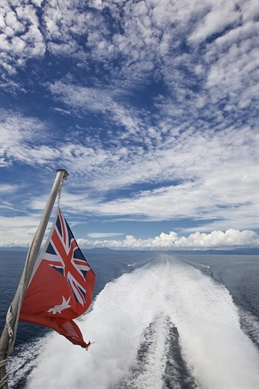
Australia’s Competition Policy Review Panel (the panel) has recommended the repeal of the current statutory exemptions for the liner shipping industry, potentially exposing conference agreements to the full rigour of Australia’s competition laws.
Members of the shipping industry who may be adversely impacted by this proposed legal reform have until November 17, 2014, to make submissions to the panel.
Background
Prime Minister Tony Abbott and Bruce Billson, the minister for small business, announced the Competition Policy Review on December 4, 2013: the first comprehensive review of Australia’s competition laws and policy in more than 20 years (the review).
On March 27, 2014, Billson announced the members of the panel and released the final terms of reference following consultation with the states and territories.
The panel is led by Ian Harper, a professor and partner at Deloitte Access Economics in Melbourne, with panel members Su McCluskey, chief executive officer of the Regional Australia Institute; Michael O’Bryan, senior barrister at the Victorian Bar; and Peter Anderson, former chief executive of the Australian Chamber of Commerce and Industry.
The issues paper was released on April 14, 2014. Submissions in response to the issues paper were open until June 10, 2014.
On September 22, 2014, the panel released its draft report.
The draft report is wide-ranging and contains many recommendations across the entire economy. It includes a number of specific recommendations in respect of the liner shipping exemptions of the Competition and Consumer Act 2010 (Cth) (the CCA).
The publication of the draft report will be followed by a series of public forums in various Australian states and territories to discuss the recommendations made in the draft report.
Submissions in response to the draft report are invited to be made by November 17, 2014, before the panel prepares its final report, which is expected to be provided to the Australian Government by March 2015.
The Current Exemptions
Part X of the CCA allows liner shipping operators to enter into agreements among themselves in relation to matters such as freight rates, the pooling of revenues, the identification of trade routes and the quantity and kinds of cargo to be carried.
While such conduct might otherwise fall foul of the cartel conduct prohibitions under the CCA, the registration of such agreements with the Registrar of Liner Shipping confers upon the liner operators exemptions from those prohibitions, provided the Registrar is satisfied that there is an overall benefit to Australian exporters or importers.
The historical justifications for such exemptions included the need to secure stability of trade and to deliver an efficient supply of liner services to Australia, as well as avoiding destructive competition.
Recommendations
The panel has formed the view that while the current system requires the demonstration of an ‘overall benefit’ to Australia before an agreement can be registered under Part X, there is no requirement for an assessment of the competitive effects of that agreement.
Further, under the current system, the registration process completely bypasses the primary competition regulator (the Australian Competition and Consumer Commission (ACCC)) in favour of the Registrar of Liner Shipping, an office specifically created under Part X of the CCA.
On these and other bases, and subject to a two year transition period, the panel recommended in its draft report:
• the repeal of Part X of the CCA in its entirety
• subjecting the liner shipping industry to the normal operation of the CCA, including the cartel conduct prohibitions
• the granting of a new power to the ACCC to grant ‘block exemptions’ for conference agreements which contain a minimum standard of pro-competitive features (but, in the example given by the panel, not involving a common conference tariff or the pooling of revenues and losses)
• subjecting those conference agreements, which do not have such pro-competitive features, to individual authorizations through the ACCC
• but alternatively, if the general block exemption power recommendation is not taken, requiring parties to conference agreements to seek authorization from the ACCC on the basis of the ‘net public benefits’ test employed in other industries.
Comments
The exemption system, in various guises, has been employed successfully in Australia since at least 1966, and provides a degree of certainty for shippers and importers (in respect of service levels) and liner operators alike (in respect of investment levels on Australian routes).
The recommendations of the panel appear to accord with the general concerns expressed by the ACCC in respect of the exemptions granted to the liner shipping industry. However if adopted, the recommendations have the potential to add an unnecessary level of complexity and bureaucracy to a system which is well understood and certain in its application.
Industry participants have until November 17, 2014, to consider the recommendations and make submissions in respect of them. Our team has a breadth of experience in assisting clients with drafting submissions to the government and lobbying for legislative and policy change. Please contact us if you have any questions or would like assistance with drafting submissions.
By Richard Arrage
and Murray Deakin
K&L Gates | Sydney



